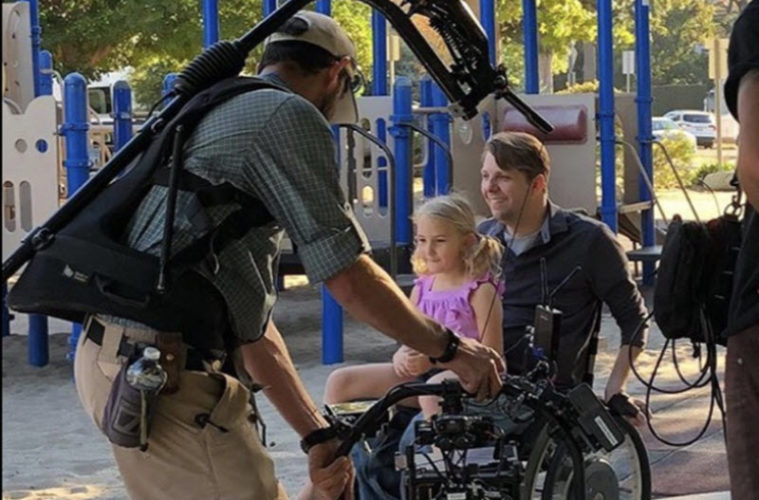 CURE NATION: Would you like to be an actor? Are you aiming to star in your own reality TV show?
CURE NATION: Would you like to be an actor? Are you aiming to star in your own reality TV show?
Tune in below as Abilities Expo host and Cure Advocate Julienne Dallara shares her secrets along with tips from tv star Toby Forrest for starring on the silver screen when you have a disability!
Micah Fowler. Teal Shearer. Ali Stroker. Tobias Forrest. Just a few working actors who also happen to use wheelchairs. How did they get there? Is there a path to working in ‘The Business’? Is it easier once you are in a wheelchair? As an actor myself, I went to find the answers.
I quickly learned, I am the exception when it comes to the silver screen.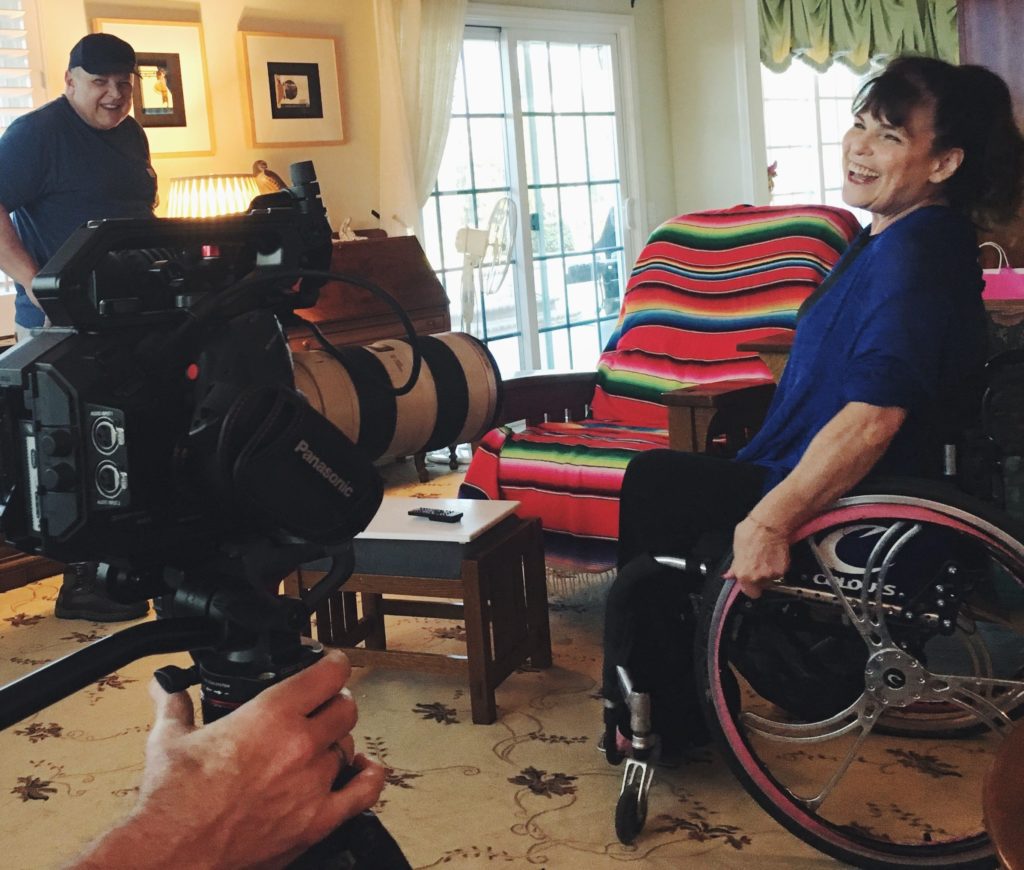 I was an actress for 22 years before I began using a wheelchair. When I was auditioning as an able-body, I’d get three auditions a week, walking into a room of Julienne-clones, auditioning for the same role. Once I began using a wheelchair, I would average one audition a month, rolling into a room with three other females in wheelchairs, none of whom looked like me.
I was an actress for 22 years before I began using a wheelchair. When I was auditioning as an able-body, I’d get three auditions a week, walking into a room of Julienne-clones, auditioning for the same role. Once I began using a wheelchair, I would average one audition a month, rolling into a room with three other females in wheelchairs, none of whom looked like me.
Obviously, “wheelchair” was the only defining trait in their casting call.
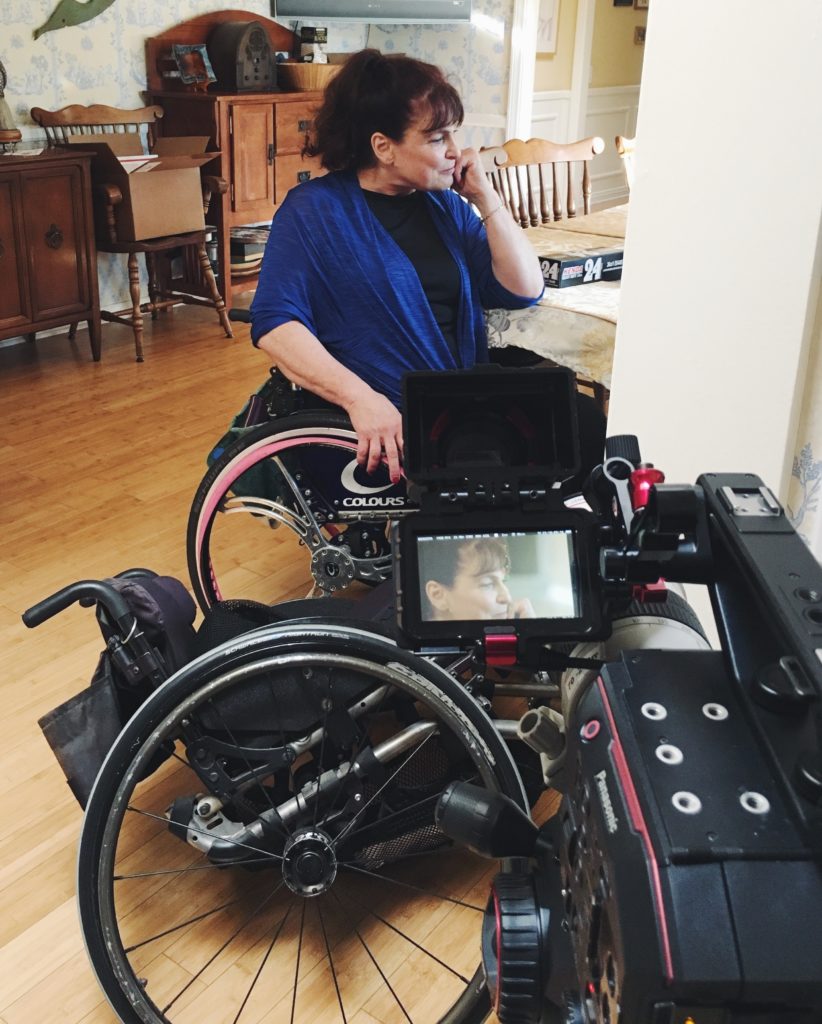
DEVELOPING YOUR TOOLS FOR ON-SCREEN AUDITIONS
The tools for an acting career are the same, sitting or standing: everyone is required to have headshots, a resume, training, experience, connections and luck.
Being in the actors’ union (SAG/AFTRA) is preferable, but there’s a catch: to join the union, you must do union-eligible work, but you can’t get hired for union-eligible work until you are in the union.
You do non-union work and hope for an upgrade. Then you hope for enough money to apply for union membership as currently joining SAG/AFTRA costs $3,000.
That double-edged curse began while I was playing a munchkin when I was five years old. I developed a healthy theatre addiction, craving the stage and camera, and found myself more comfortable being someone else rather than myself.
I rose up in my acting career during the age of Stanislavski and Method acting. I earned a degree from a prestigious college, going on to act/sing/dance in London, New York, and eventually, Los Angeles. My career at that time was going well.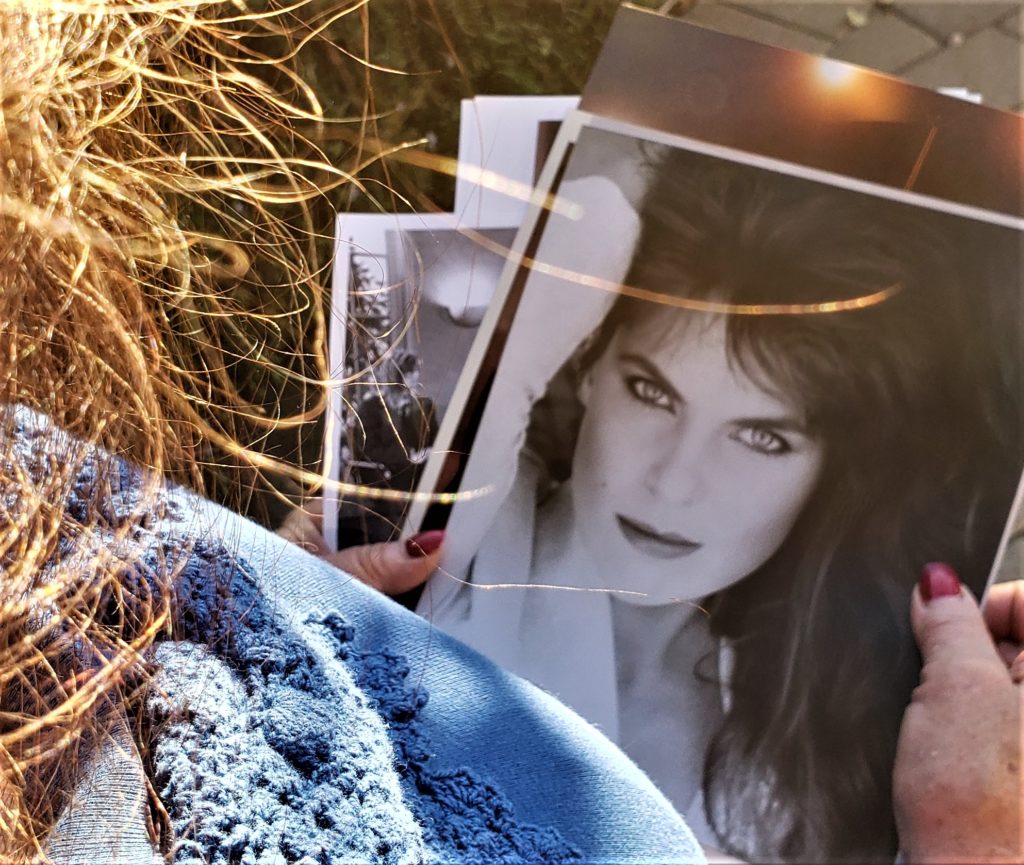
STARRING IN THE MOST REAL FORM OF REALITY TV: YOUR OWN LIFE AFTER PARALYSIS
But what happens when you wake up paralyzed? Mine onset during the unenlightened 1990’s, before the ‘real people’ trend hit today’s media.
I had been performing comedy/improv at the same theatre for five years, but after I was diagnosed with Transverse Myelitis, the theatre owner told me “You can’t perform here. People in wheelchairs aren’t funny, you’ll just make people sad.”
He could have been the first to start Sit Down/Stand Up comedy sketches. Instead, I divorced him. (Yes, that theatre owner was my husband.)
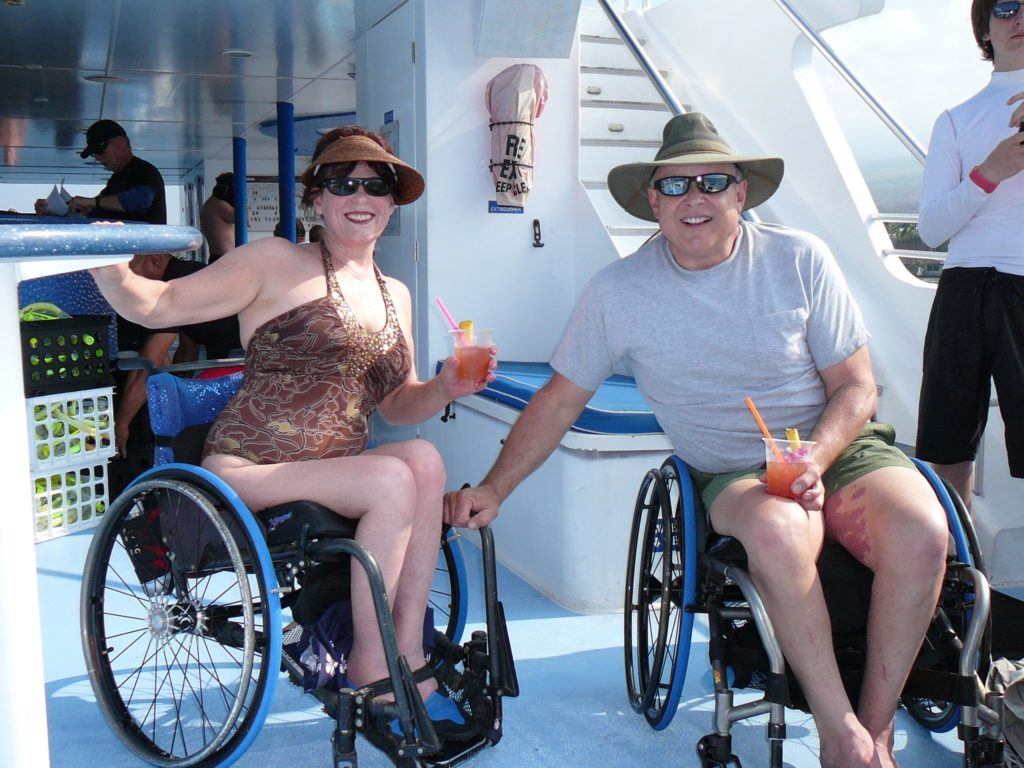
Julienne vowed never to let Transverse Myelitis slow her down. She and her husband Dan (not the theatre owner!) travel often, like in this trip to Kona, Hawaii.
Fortunately, things have changed for the better today. An award-winning commercial agent in Hollywood describes the acting industry this way: “Authenticity is in now, but what defines authentic varies. Currently, people with freckles and gaps between their front teeth are hot. Also, anyone transgender or gender fluid. Wheelchairs go in and out of style. Right now, they are big in print and fashion.”
Once I began using a wheelchair, I booked the occasional commercial, and a few industrials. Most recently, I appeared in the new “Earthing” film. I’m not a character, just someone who has found healthy answers through grounding. Still, the work’s the same, requiring an intensely personal and honest approach.
TOBY FORREST SHARES HIS ACTING APPROACH
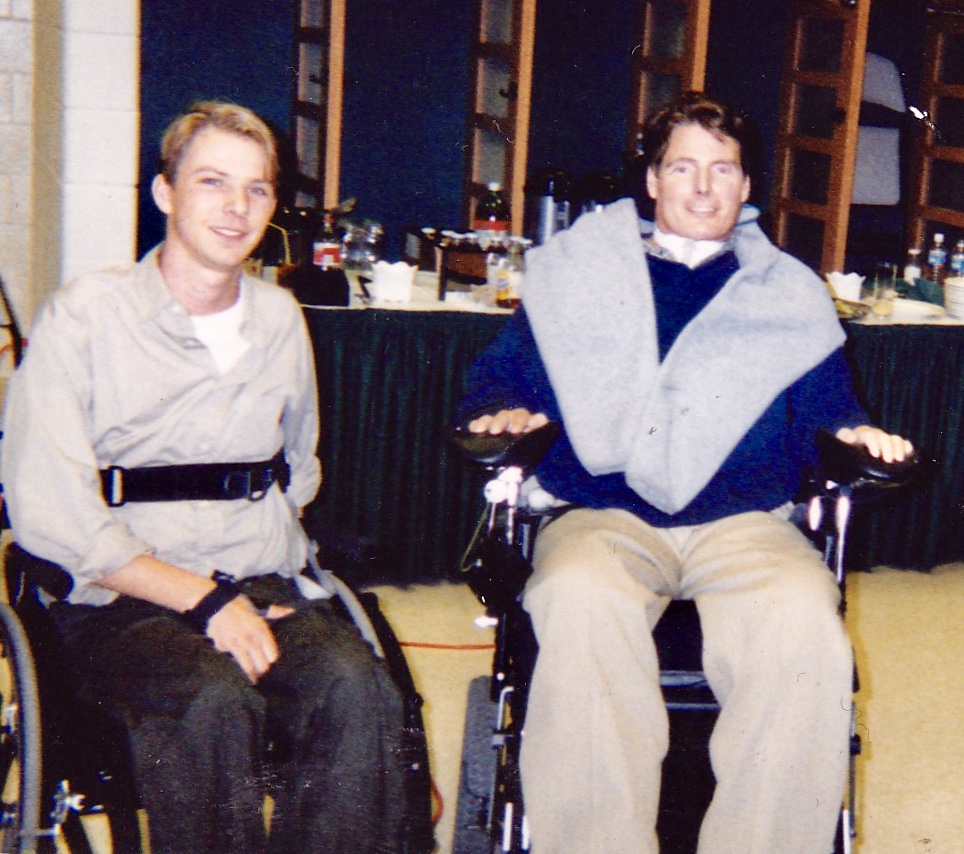
Toby met Christopher Reeve in person when he won his acting scholarship.
It only takes a second browsing the IMDB website to learn how many acting jobs Toby Forrest has booked, including stints on Weeds (2005), The Sessions (2012) and Special Unit (2017). Toby’s stellar career kick-started when he won the Christopher Reeve Acting Scholarship, a competition that runs every year.
Toby says, “I wrote and performed a monologue about a man with Alzheimer’s disease, and I won the competition! I used the $5,000 prize to take acting classes.”
At the time he also a musician, fronting his own band, but after the scholarship win, he decided to focus on acting.
“I came up with a 10-year plan: do student films, apply for work as a set extra, hope to get bumped up to saying a line.”
He remembers, “I made realistic goals. I knew I would never be an overnight success, I just want to get paid to play a guy in a wheelchair… or not in a wheelchair!”
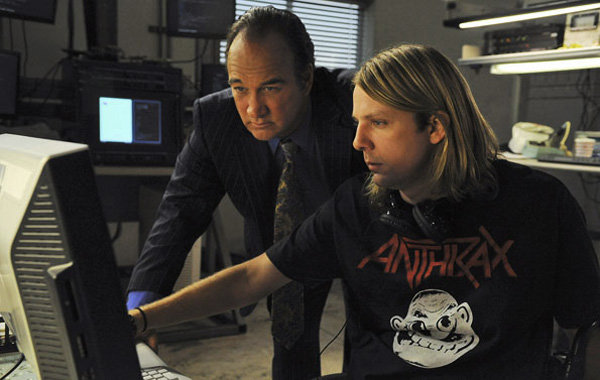
Photo: Ron P. Jaffe/CBS – © 2010 CBS Broadcasting Inc. All Rights Reserved.
Most recently, Toby guest-starred on the hit TV show “How To Get Away With Murder” that aired Thursday, October 17 on ABC. He had the opportunity to act with the incredibly talented Viola Davis during the show.
He’s also currently filming a new project. DARUMA is a road trip movie that tells the story of a bitter paraplegic who enlists the help of his cantankerous neighbor, a double amputee, to transport the four-year-old daughter he never knew he had to live with her maternal grandparents on the other side of the country.
What makes this film different is that the two lead actors are authentically cast, but the film is not about disability.
NOTABLE FILM AGENTS GIVE AUDITION ADVICE
How does Toby gain the producers’ interest when he auditions for a new gig? “If I go into an audition, there’s 10 guys in wheelchairs waiting. I’ve been lucky. After the Christopher Reeve win, I did a play in Pittsburgh and was up for a Showtime series. I went all the way through several audition rounds, against great actors! The producers ended up going with one of the famous guys, but they liked me so much they wrote a role for me,” Toby explains.
The end of that story, as it so often is, is anti-climactic. Toby says, philosophically, “The Showtime series didn’t get picked up so I never got residuals. But I discovered my film agent because of it!”
That agent agreed to talk to the CURE NATION!
“Toby is a great example of what we want to see in our office. He is prepared, trained, he is a professional,” says Gail Williams of KMR Talent Agency.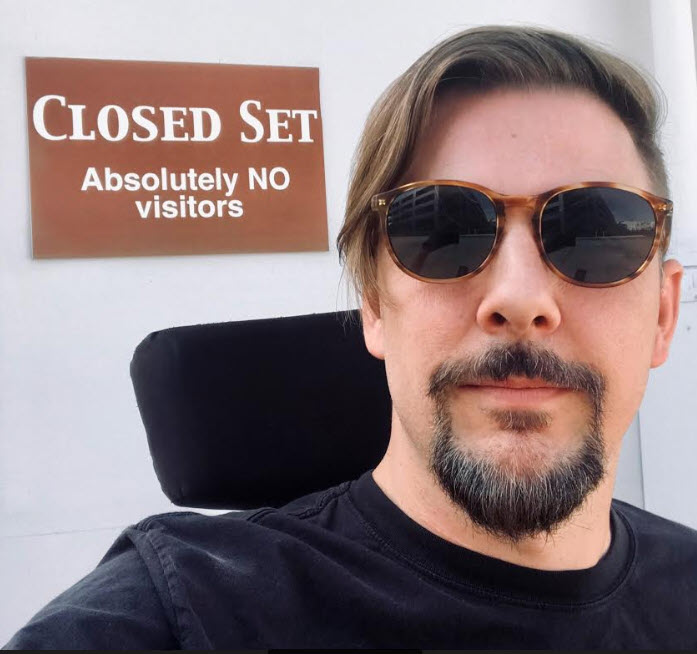
Gail was the driving force behind Media Access Office, the first source of acting work for people with disabilities. “Back in 1991, there was one person of color cast in all of the active television pilots and zero people with disabilities. MAO was instrumental in changing that,” she adds.
“We became the one-stop shop for the non-traditional actor. That’s what it took to get people with disabilities in the mainstream – we made it easy for the casting directors to find us.”
Gail’s work as a talent agent for actors with disabilities spans 30+ years and began as a volunteer position at the Media Access Office in the California Governor’s Committee for Employment of People with Disabilities.
Her son has Down Syndrome, and he was tremendously impacted in a positive way when Life Goes On premiered in 1989 starring Chris Burke, an actor with Down Syndrome.
Now, Gail Williamson is known industry-wide as THE person to call when you need an actor with a disability.
When asked the age-old question “what are you looking for?,” Gail replies firmly, “I don’t need people with a disability coming in unprepared. It is a profession – be professional! I want to see your reel, headshot and resume. If someone is working hard at their craft, it shows.”
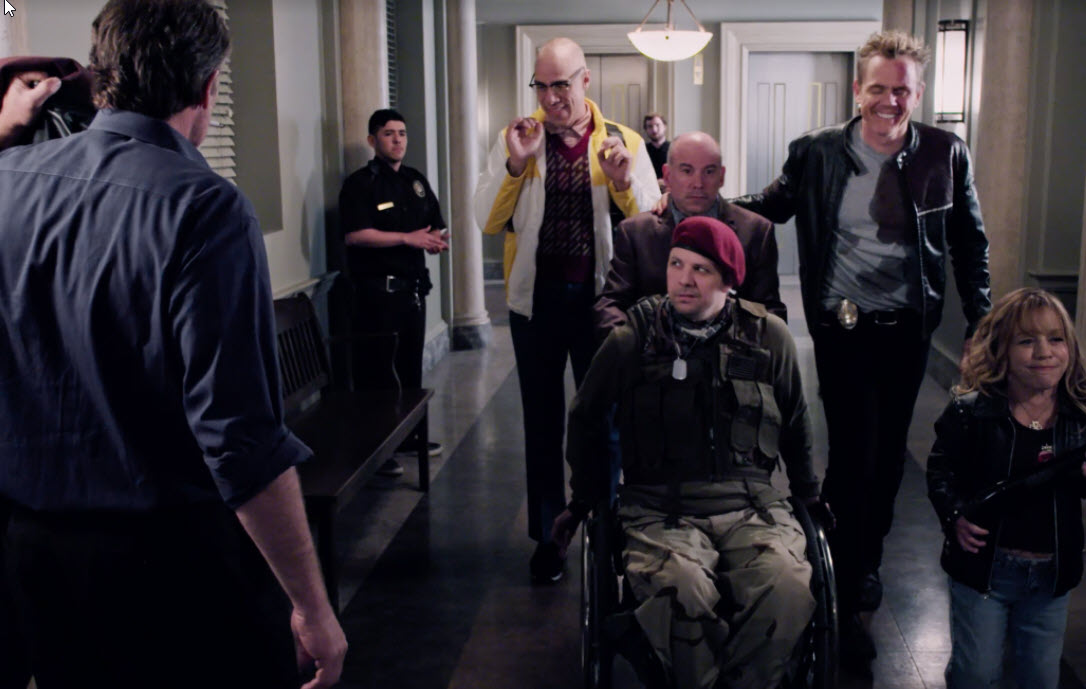
Screenshot from the feature film “Special Unit” with Tobias Forrest, Christopher Titus, Debbie Lee Carrington, Michael Aronin and David Figlioli.
“I need professional actors; some of whom just happen to get around in a wheelchair. We are fortunate in that the industry finally values authenticity. Ten years ago, you would hire an able-bodied actor and sit them in a wheelchair. Now, producers actually ask to see people who use wheelchairs for roles,” she adds.
Gail is quick to point out that actors must be prepared. “I tell people that it is a level playing field in one way: people in wheelchairs are as unemployable as any other actor.”
The people who get the work are the people who create their own work,” she explains.
Her current roster of clients speaks for itself. “I probably have 100 actors who have the goods. Once I know that I can trust them, my goal is to get them cast in any role. I will call a casting director and say, ‘why can’t the lawyer be in a wheelchair?,’” and the story goes from there.
JULIENNE DALLARA USES THE CURE TWIST WHEN ON SET AND ON THE GO
“The people from Cure Medical are big supporters of the Abilities Expo,” Julienne explains. “I used to get my catheters from people who knew what they were doing, but now due to Medicare changes, I had to get catheters from companies that often don’t know what a catheter is or care how much I depend on them. I received some of the worse catheters ever from those kinds of companies.”
“Tired of dealing with uncaring companies and inferior catheters, I stopped by the Cure booth at the Los Angeles Abilities Expo and talked with company founders John Anderson and Bob Yant. John suggested that I try Cure’s products after I told him about my frustration with other brands.”
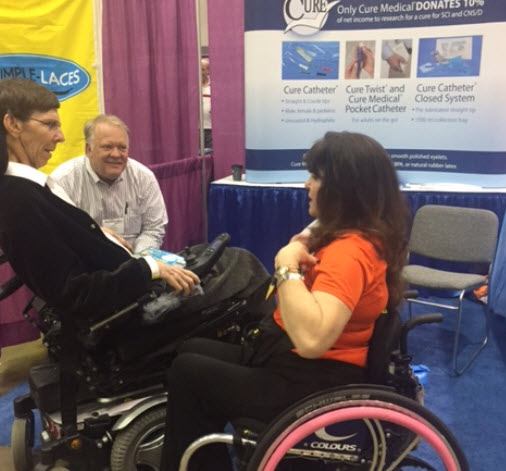
Julienne shared her experiences with Cure Medical founders Bob Yant and John Anderson during a recent Abilities Expo. Bob is a C4 quadriplegic and understands Julienne’s concerns firsthand.
“I received some samples, and I was blown away at how compact the Cure catheters were, and how very well they worked. The catheters already had lubrication on them, so they weren’t messy and didn’t get all over my hands and my clothing.”
I found Cure’s catheters to be a far superior product than what I’d been using, especially because they aren’t made with chemicals like DEHP/DINP.
Try THE CURE TWIST®, A READY-TO-USE CATHETER FOR WOMEN
Appearance isn’t the only advantage of the Cure Twist®. The ready-to-use Cure Twist® Catheter for Women also offers all these benefits and user-driven innovations:
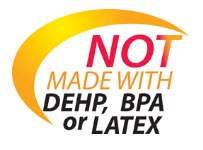 Female catheter, available in French sizes 8-16
Female catheter, available in French sizes 8-16- Easy, twist-off cap in a small, portable configuration
- Smooth polished eyelets for increased comfort
- No Drip/No Mess pre-lubrication
- Attractive discreet dispenser – similar to cosmetics
- High quality materials – not made with DEHP*, BPA, or natural rubber latex offer peace of mind
- Support of research in pursuit of a cure for SCI and CNS/D possibly offers the best benefit of all!
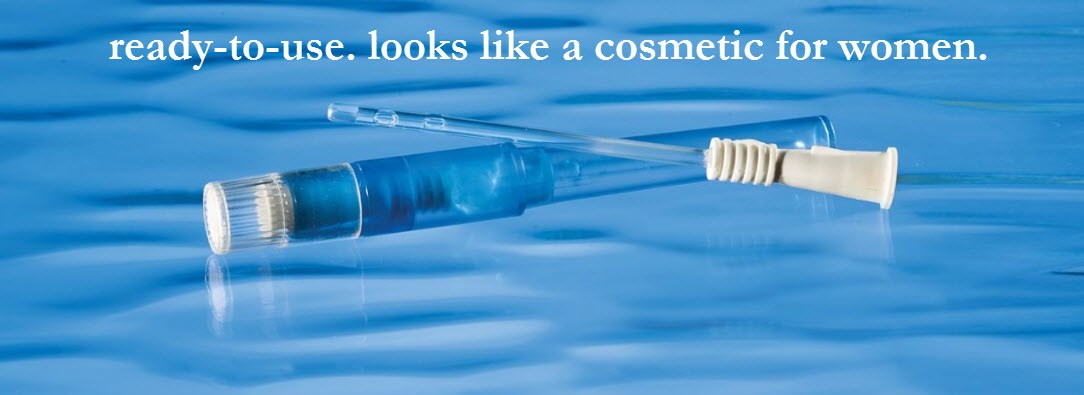
 To request free samples of the Cure Twist® Ready-to-Use Catheter like Julienne did, contact your local distributor of quality healthcare products, or click here.
To request free samples of the Cure Twist® Ready-to-Use Catheter like Julienne did, contact your local distributor of quality healthcare products, or click here.
I wrote a note to Lisa Wells, the vice president of marketing at Cure Medical, and told her, ‘Your products are the best I ever have used. Your company also has the best philosophy and is willing to give back to help find cures for many of the problems that people with disabilities have. What can I do to help?’
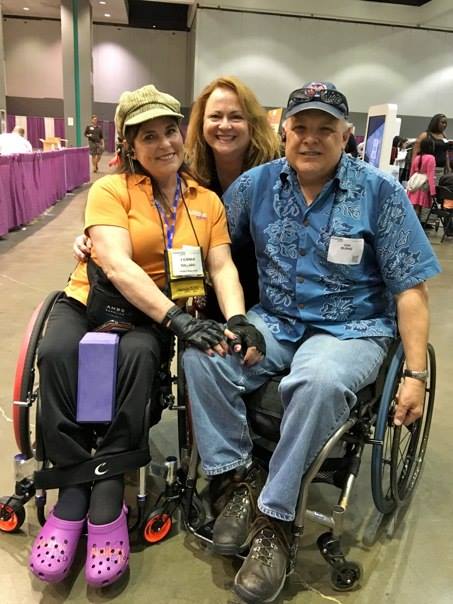
Julienne wants to help other people discover Cure catheters, so they don’t have to go through the struggles she did.
Lisa answered, ‘Would you like to be a Cure Advocate to help others learn about our products?’
I told Lisa, ‘I would be happy to be an advocate! The word has to get out about Cure Medical, its products and the company’s willingness to try and find a cure for not only spinal cord research, but also the other diseases and injuries that cause people to rely on wheelchairs.’”
Enjoy Our Free Resources & Articles
 CURE NATION is designed with you in mind, to offer assistance and education when you need it through a personal support program.
CURE NATION is designed with you in mind, to offer assistance and education when you need it through a personal support program.
All of the information you find below and on our related social media pages is meant to guide you to places, topics and resources that enhance your life, while also connecting you with a growing group of friends.
View our lifestyle resources by condition type:
Multiple Sclerosis, Pelvic Organ Prolapse, Prostate Cancer, Spina Bifida, Spinal Cord Injury and Transverse Myelitis
- Sign up for our free, CURE NATION e-newsletter to have our latest stories delivered directly to you, once a month.
- Get our FREE LIFESTYLE + ACCESSIBLE TRAVEL BOOKS here.
- Meet us in person at a CURE NATION event.
- Have an idea you’d like to share? Let us know.
- Be sure to take minute to meet our Cure Advocates too.
You may also enjoy:
Arlene Long Shares Her Love of Community!
Natalie Barnhard - Advocate and Entrepreneur
“I Have a Friend…”
Accessible Living By Design: Steve Bertasso Helps You Adjust Like He Did
Accessible U.S. Travel Guide: Las Vegas + Nevada for Wheelers
4 Wheel City: Rapping for Positive Change
The Eternal Significance of Cowboy Boots For Cure Medical’s Founder Bob Yant
Patti Jasinski Shares One Mother’s View of Spina Bifida

